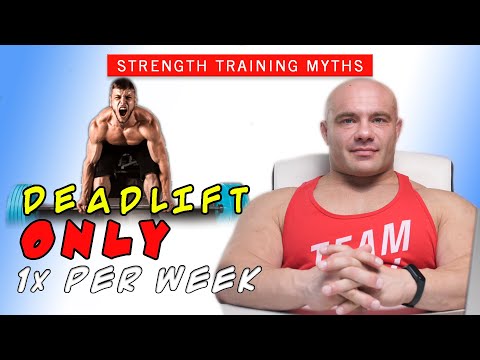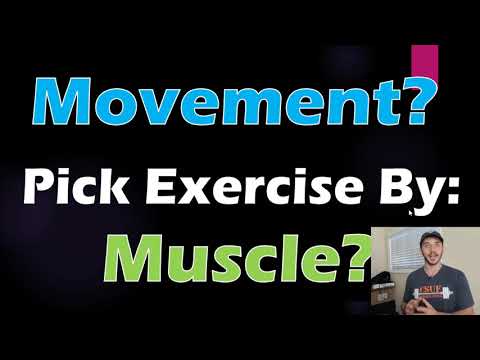I’m on the same jouney. I just had bloodwork done for the first time at age 40. Turns out I have FH, my apob 175 and ldl-p 3143 numbers are sky high. Otherwise I’m in great shape and health. Was just placed on Rosuvastatin and my doctor says that after a checkup in three months they will probably add a repatha because a statin alone wont get me to where i need to be.
I went down the rabbit hole on cholesteral and heart health and can say the most recent podcast with Peter Attia and Tom Dayspring is very informative regarding the most up to date treatments for lowering apo b. All of peter attia’s interviews regarding heart health are worth listning to and will greatly inform you for how to speak with your physician
@Maveric78 Yes, I did. I took a 6 week rapa vacation. During that time my HR gradually decreased to the low to mid 60s, which is still 8 to 10bpm higher than it had been before starting rapamycin. But the 2 week HR pattern/cycle in my screenshot above broke very noticeably.
I restarted end of July. I’ve only had two cycles since the rapa vacation, one at 7mg an hour after a whole grapefruit, the next at 8mg + g. My HR is again inching up, but I’m particularly overtrained right now so it’s difficult to say. The clear-cut HR cycle hasn’t re-started yet.
My current take-away from this is to confirm in my own mind the need for periodic rapa vacations. Something along the lines of 6 months on, 6 weeks off, repeat. Plus to keep a bit lower. I don’t intend to go above 8mg + g once every two weeks.
One interesting twist from my last blood test is that my testosterone is quite high, with total T above the normal range. I’m happy with that, but it’s surprising at age 50 with no TRT, etc. It would also suggest that stress isn’t the cause of my higher heart rate or lower HRV, since stress tends to decrease T.
I do get a lot of sunlight, sauna and exercise.
Thanks for the update. Your testosterone data looks promising.
@Agetron ‘s recent data shows that GFJ can multiply blood levels >3 times so your original 10mg might actually have been the equivalent of >50…
I’m interested to know who here is taking over 10mg per week of actual Rapamune (powders have lower bio availability) without GFJ.
I have been taking powder rapamycin with coconut oil in my coffee since Dec 2021. I had been training 11 weeks for a sprint triathlon event that I competed in late July. I took 6mg/per week for the first 6 weeks of training and 5 weeks off rapamycin before the event. I felt ok training with rapamycin but it does impact my sleep for a few days. Rapamcin doesn’t seem to impact my resting HR.
During the 5 weeks off Rapamycin:
- Resting HR (taken upon waking) decreased from 50 to 42 bpm.
- Recovery rate from hard workouts subjectively seemed much easier than I have experienced over the past 20 years
Race Results:
- Improved finish time by 4 minutes over the last time I did the triathlon 3 years ago in 2019 (86 minutes to 82 minutes)
- Improved finish rank also - 65th of 180 m/f finishers. 2019 rank was 122 of 230 m/f finishers.
I had an annual physical 2 days before the triathlon. BS and Cholesterol were slightly improved and in the normal range. I also had a testosterone test done for the first time to establish a baseline. My results are very similar to Boldi’s. At age 67 I thought it odd to have such high levels.
I was surprised at the improved results given I have not done any races or hard training since 2019 and expected to be pretty gassed. I am 3 years older also. I will consider doing the same type of on/off rapamycin dosing when training for similar endurance events in the future.
Note - 17 days after the event, my morning resting HR is back to 50. I still workout but the de-training effect is pretty rapid. I will go back on rapamycin in a few weeks for 6 weeks and take another break from it.
Note - There were only 9 m/f competitors in my 65 and above age group out of 165 total racers. Where is everybody? Playing pickle-ball? ![]()
@Bettywhitetest that’s fantastic, and interesting info–thank you for sharing!
One thing I should add. If the increased HR really is due to lower MCV (I exchanged emails with Matt Kaeberlein and he agreed this could be the mechanism) then a full rapamycin vacation would have to be close to 120 days to fully change over red blood cells. I don’t want to go that long.
But a question that’s come to my mind since then is that if rapamycin shrinks MCV, then I wonder whether it has similar effects to training at altitude, where the body compensates for lower oxygen delivery (lower MCV) by increasing the number of red blood cells? But I’m just spit-balling at this point…
I was thinking along the same lines that endurance training under rapamycin could be similar to training at altitude. I wasn’t thinking to the direct effect of lower MCV (mean corpuscular volume) and just the generalized training effect and recovery being enhanced in some way.
I am not even close to doing the endurance training hours you put in weekly. Training for the much shorter sprint triathlon is about as hard as I push it. I generally do 5k races here and there but am active daily with strength training, and hobbies like hiking and downhill skiing. My guess is rapamycin had some impact on recovery at my training level - I typically would be pretty beat after a race and I barely felt any impact this time.
Please update us on how your resting HR and recovery from over training does as you reintroduce rapamycin into your schedule.
The advantage of endurance training like running, cycling, etc. is that you can isolate variables far better. I do combat sports, which are always dependent on the dynamic between me and my partner while working multiple energy systems at once–which isn’t easily amenable to even n=1 controlled experimentation. It’s all very subjective.
That said, I haven’t encountered the sort of “gassing out” issues that I’d expect with a higher RHR and lower HRV, except for the first couple of days after my biweekly rapa dose (and even that seems to be lessening over time).
I’ve been giving more thought to the timing of rapamycin around resistance training.
Research suggests that MTOR is activated for 24 hours post training:
We also know that the deadlift is the most effective stimulus to overall strength and hypertrophy and that it should only been trained (heavy) once per week:
So if we want to maximise adaptation to resistance training then it makes sense to take Rapamycin 24 hours after your DL session so that it has the maximum length of time to clear before you DL again.
Until some research comes out our best bet is probably to just not take rapamycin on the same day of the week every time
Deadlifts once per week are good for hypertrophy, but not if your goal is strength. I personally dont care about muscle size, just strength. Right now I’m in a strength cycle and deadlifting 4x per week, on top of 5x per week jiu-jitsu plus a bit of zone 2 for maintenance. Admittedly, that’s pushing me into overtraining a bit.
No, the majority of the best powerlifters in the world deadlift once per week. Certainly only once above 75%.
Andy Bolton (1st man to deadlift 1000 pounds)
Eddie Hall (1st man to deadlift 500kg)
Example of an elite 75 year old (one heavy session and one <70%)
Training more frequently at (higher percentages) will just lead to stagnation and greater risk of injury.
Interesting, thank you!
I change approaches every few years, but this is who I’m currently following for strength. Andy Galpin has degrees in Exercise Science, Master’s in Human Movement Sciences, PhD in Human Bioenergetics, founded Biochemistry and Molecular Exercise Physiology Lab, and trains elite athletes including MMA, which is closest to relevance for me.
I admit there’s a tension between Galpin and the person whom I trust most for recovery, Joel Jamieson. Another MMA strength and conditioning coach, but far more focused on recovery–which is everything for me now at age 50.
The drawback of DLs is that they create a high degree of systematic and CNS fatigue. This can have a negative impact on the quality of other training components in the days following.
However if you follow a training cycle similar to the one outlined by Pavel in the article above you are only going close to failure in the last couple of weeks of a 12 week plan. You could therefore de-emphasise other training in those weeks to allow greater recovery.
I used to lift quite heavy until about 5 years ago, when I completely stopped, with the only strength training coming from BJJ itself. A couple of months ago I decided it was time to rebuild strength, but right now I’m only doing DLs. (Actually trap bar DLs with a Kabuki trap bar, which are half way between DLs and squats in terms of muscle engagement.)
So, yes, I’m de-emphasizing everything else for a 12-week cycle. (Normally, I prefer 8-week cycles, but because I’m back to being a noob in lifting, I’m extending it.)
There’s only one other black belt in my jiu-jitsu club, so I can usually choose my level of my exertion during sparring as well.
I have half-pound miniplates, and I just add one to either side every day, so I’m adding a pound a day every lift. I was initially doing it 5 days a week, but the CNS fatigue was too much. When I was younger, I built up to a 5x5x500 squat using this approach of tiny-but-consistent progressive overload without ever hitting a plateau. At my age, I don’t want that sort of load on my vertebrae, which is why I’ve switched to the trap bar DL.
I think there could be something in this. Use rapamycin in preparation but come off a month before a big competition to undo any mild anemia that might otherwise limit performance.
The World Masters are back in Manchester next year so I will be the guinea pig for you all!
“I think there could be something in this.” - Subjectively I think the training effect seemed very robust after dropping the rapa. It sort of makes sense on a number of levels. I dropped my weight training during those 5 weeks for example, and that allowed my cardio levels to increase more than if I hadn’t.
I would only add one caveat in my case. I was taking 6mg of the powder rapa from a compounding pharmacy in the USA. So I think my rapa blood levels were significantly lower than someone taking tablet form. I am currently taking the Biocon tablet now so I will see how it goes in my own training.
Good luck!
Rhonda Patrick just sent out this study, which shows intense aerobic exercise reduces the risk of metastatic cancer by as much as 73 percent. But what jumped out to me in the study was this line:
“The protective effects of exercise were dependent on mTOR activity, and inhibition of the mTOR pathway with rapamycin treatment ex vivo reversed the exercise-induced metabolic shield.”
Not sure how to read this.


